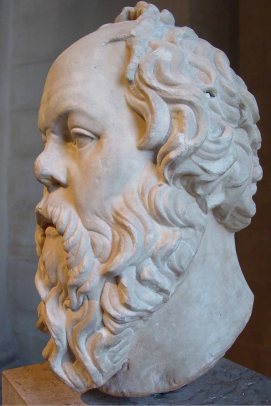The answer may depend on whether you believe you have free will.
Month: November 2014
The vanishing self
In an interview with Gary Gutting, Sam Harris explains that there is no self. “Consciousness exists (whatever its relationship to the physical world happens to be), and it is the experiential basis of both the examined and the unexamined life. If you turn consciousness upon itself in this moment, you will discover that your mind tends to wander into thought. If you look closely at thoughts themselves, you will notice that they continually arise and pass away. If you look for the thinker of these thoughts, you will not find one. And the sense that you have — ‘What the hell is Harris talking about? I’m the thinker!’— is just another thought, arising in consciousness.
Disgusted with gross violations
Disgust is often used to persuade. But are gut feelings a reliable guide to right and wrong? Carol Hays’ persuasive answer is that they are not. Reasons rather than emotions should guide our moral reasoning.
Philosophical implications of the urge to urinate
The state of our body affects how we think the world works. For example, belief in free will is negatively correlated with the desire to urinate. Daniel Yudkin explains some recent research leading to this conclusion.
Being and time, being and nothingness
Short video introductions to two very influential 20th century thinkiers: Martin Heidegger is, without doubt, the most incomprehensible German philosopher that ever lived while Jean-Paul Sartre made philosophy and thinking glamorous.
Stoic Week begins Monday, November 24
Stoic Week 2014 is an online and international event taking place from Monday, November 24, to Sunday, November 30. This is its third year. Anyone can participate by following the daily instructions in the Stoic Week 2014 Handbook. You can follow the Stoic practices of Marcus Aurelius, Seneca and Epictetus, for seven days, and discuss your experience other participants. “The aims of the course are to introduce the philosophy so that you can see how it might be useful in your own life and to measure its potential therapeutic effectiveness.”
Lost in Rawlsland
George Yancy’s interview of Charles Mills: “Here in the United States, for example, we have the absurd situation of a huge philosophical literature on social justice in which racial injustice — the most salient of American injustices — is barely mentioned.” The interview raises challenging questions about how useful Rawls’ ideal social contract is for dealing with real-world injustice, especially racial injustice.
Moral character: it’s who you are
Nina Strohminger explains why your moral character is the key to your self-identity. “‘Know thyself’ is a flimsy bargain-basement platitude, endlessly recycled but maddeningly empty. It skates the very existential question it pretends to address, the question that obsesses us: what is it to know oneself? The lesson of the identity detector is this: when we dig deep, beneath our memory traces and career ambitions and favourite authors and small talk, we find a constellation of moral capacities. This is what we should cultivate and burnish, if we want people to know who we really are.”
Return to “The Lagoon”
Another review of “The Lagoon: How Aristotle Invented Science,” this one by Rebecca Newberger Goldstein, the author of Plato at the Googleplex: Why Philosophy Won’t Go Away. Goldstein admires Aristotle but also defends Plato: “Plato and Aristotle: What an accident of history that two such contrasting orientations toward the physical world, animated by two such different aesthetic sensibilities, should have been pedagogically entangled with each other. One espies beauty in the elegance of the mathematical proportions he is certain rules the cosmos, the other in the richness of sensed particularities he is certain can be functionally explained. Both orientations would find application in the developed sciences to come … .”
Ebola and CPR
Should a medical team try CPR to resuscitate an Ebola patient whose heart stops beating? Medical ethicist Dr. Joseph J. Fins says no because the risks are too great for health care workers and even for some Ebola patients whose heartbeat is restored.
